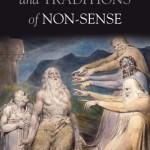We run our website the way we wished the whole internet worked: we provide high quality original content with no ads. We are funded solely by your direct support. Please consider supporting this project.

Cruciform Aikido Pt 1: Jesus and the Violent God
Note: Today, we are beginning a 4-part series on the subject of divine judgement called “Cruciform Aikido.” We will be publishing this once a week alongside Greg’s introduction to ReKnew series.
When most people think of God judging sinners, they imagine an angry God who acts violently as he vents his wrath and brings vengeance on people. Many base this understanding on various portraits of God judging people in the Old Testament (OT). (The book of Revelation also symbolically depicts God and Christ in violent ways, but that is a topic for a later blog.) There’s no question that some portraits of God in the OT depict him acting violently as he judges people. But these violent portraits are very hard to reconcile with the embodied revelation of a non-violent, enemy-loving God that we have in Jesus. Instead of calling on legions of angels to crush his enemies, Jesus offered himself up on their behalf, allowing them to crucify him while praying for their forgiveness with his last breath (Mt 26:53; Lk. 23:34). Since Jesus is the one and only perfect revelation of God’s essence (hupostasis, Heb 1:3), our understanding of God’s character and judgments ought to be anchored solely in him.
Moreover, since all Scripture is written to bear witness to Christ (Jn 5:39-40, 46-47; Lk 24: 44-45), the OT’s violent portraits of God ought to be interpreted through the lens of Christ. While all Scripture is divinely inspired, it was not intended to carry the same weight for all people throughout history. Hence, for example, while Jesus declared that John the Baptist was the greatest of all prophets leading up to him, Jesus declared that his own “testimony” was “weightier” (megas) than that of John (Jn 5:36). The revelation of God in Christ must therefore be given more weight than that of John and therefore be considered to carry more authority than any OT author prior to John. Though God certainly “breathed” (theopneustos; 2 Tim 3:16) through Old Testament authors, they did not know “the Word of God in fullness,” which was the “mystery” that had “been kept hidden for ages and generations” (Col. 1:25-26). This “mystery” was the truth of God’s humble, self-sacrificial, loving character–the character that was fully revealed only when God united himself to humanity in Christ and dwelt within his people by the Spirit of Christ–“Christ in you, the hope of glory” (Col. 1:26).
Given the supremacy of the revelation of God in Christ, we must consider the cross to be the quintessential revelation of God’s judgment. And as we will show in the next few blogs, this revelation means that the nature of God’s judgment is very different from the violent understanding that some OT authors had, and that many people today have.
Image by Orin Zebest. Used with Permission. Sourced via Flickr.
Category: General
Tags: Cruciform Theology, Old Testament, Violence
Related Reading

Was Jesus Violent in the Temple?
Many adopt the attitude depicted in the picture above, saying that Jesus used violence when he cleansed the temple. But Jesus’ stance on nonviolence is clear not only from how he responded to threatening enemies at the end of his life; it’s also strongly emphasized his teachings. We need to understand what Jesus was up…

A Cruciform Dialectic
One of the most important aspects of God’s action on Calvary, I believe, is this: God revealed himself not just by acting toward humans, but by allowing himself to be acted on by humans as well as the fallen Powers. God certainly took the initiative in devising the plan of salvation that included the Son…

What Can We Do About Gun Violence? The Rex Harsin Interview (podcast)
Dan talks with Rex Harsin about his new documentary called “Beating Guns,” made with Shane Claiborne and Michael Martin of RAWTools. What does it mean to believe in and follow a non-violent savior while wielding a gun? Can a Christian be a peacemaker while being licensed to carry? What does it mean to be a follower…

Podcast: Is Accepting Evolution with All It’s Violence Compatible with Believing in a Loving Creator?
Greg considers the violence inherent in evolution (and in nature itself) in light of our belief in an all-loving creator. http://traffic.libsyn.com/askgregboyd/Episode_0169.mp3

God of Sense and Traditions of Non-Sense
As the title suggests, in his book, God’s Problem: How The Bible Fails to Answer Our Most Important Question – Why We Suffer, Bart Ehrman argues that the Bible has nothing compelling to say about the problem of evil. Well, I just put down a beautifully written four-hundred and fifty page book that compellingly argues…

